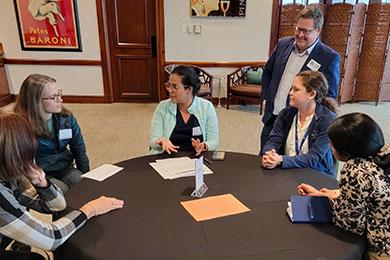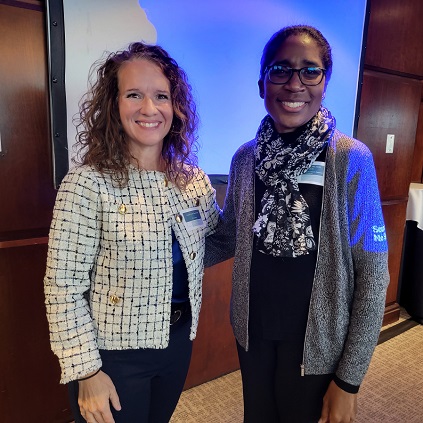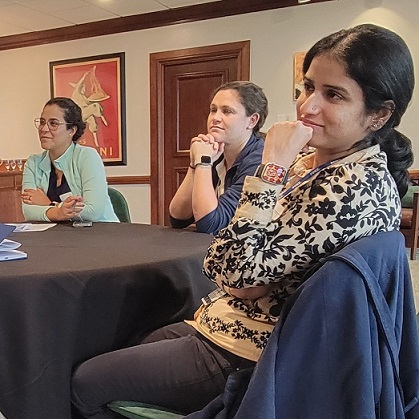
The Department of Medicine encourages junior faculty members to take advantage of one of its strongest support initiatives; the Faculty Development Academy (FDA), a two-year program that provides individual career development and supplements ongoing mentorship.
Vice Chair for Faculty Development Dr. Carla Brady — a member of the original 2011 FDA cohort — has redesigned the FDA curriculum and format for a more user-friendly experience that optimizes the learning process and provides a more user-friendly format for busy members that maximizes their time investment.
“I think back on the beginning with fond memories,” Dr. Brady said. “The Academy looked a little different back then and that’s a good thing because we want to evolve with the times and the changing needs of our faculty.”
In response to these evolving needs, Dr. Brady has refreshed and condensed the Career Development Seminar Series editorial content into a half-day workshop with two subsequent Zoom content sessions. The new workshop format gives Academy members the opportunity to receive high-level content then design the content they need by choosing among topics most valuable to them.
She has also added new content such as creativity in science and engaging constructively in conflict resolution.
“We did think about integrating content that is a little bit different from the traditional content,” Dr. Brady said. “Whereas we do include content on negotiation and challenging communication, we’re also expanding and being a little bit more creative about that content thinking about things such as how to use improvisation in your workplace and in your home. And with that how to be nimble in your conversations, and your communication, which is an important skill that we all need to have in the workplace and outside of the workplace.”

Creativity in science is one new offering that gives FDA members an opportunity to think outside the box when they are approaching research design and ideas, clinical problems. Engaging constructively in conflicts is another. Other topics in this year’s seminar series include how to build a national reputation, negotiation fundamentals, how to make clinical work count in academics, Medical Center library resources, how to achieve balance and set boundaries in life, promotion, and building effective teams.
There are four branch-specific offerings: Basic/Translational Researcher, Clinical/Health Services Researcher, Education Scholar, and Clinician-Teacher. Each branch is facilitated by a branch chair and senior faculty coaches with a strong mentoring and career development track record.
Coaches are involved in the academy-wide activities, but they also help to spearhead the branch-specific activities and work one-on-one with the faculty.
“It’s an opportunity in a busy world with all of these competing demands to carve out some time for yourself and focus on your own development, and helps you find where you get your own energy from and how you want to spend what is very precious and valuable time,” said Dr. April Salama, who chairs the Clinical Health Services Research Branch.
A second valuable aspect of the Academy, she added, is community building.

“We are part of this wonderfully diverse, huge department. This is a great chance to connect with others and it can be a springboard from there,” Dr. Salama said. “It helps people pull in the focus and dedicate time as opposed to trying to carve out small, little bits of time in the midst of a busy day. They are able to set aside dedicated time in a more strategic, integrated fashion that allows them to spend some real time with some depth.”
“Mentor groups are necessarily insular so your mentor is only one person and even if you have a mentorship team you’ve only got maybe five people,” said Dr. Matthew McCravy, a medical instructor in the Division of Pulmonary, Allergy and Critical Care Medicine. “You need opportunities to hear other perspectives and bounce ideas off other people. This is the place.”
“The hope is that the faculty will be able to learn how to engage with others in their workspaces in ways that are productive, in ways that help to build community, and in ways that will help them accomplish their goals,” Dr. Brady said.
Applications for the next FDA cohort will open in the Summer of 2025.